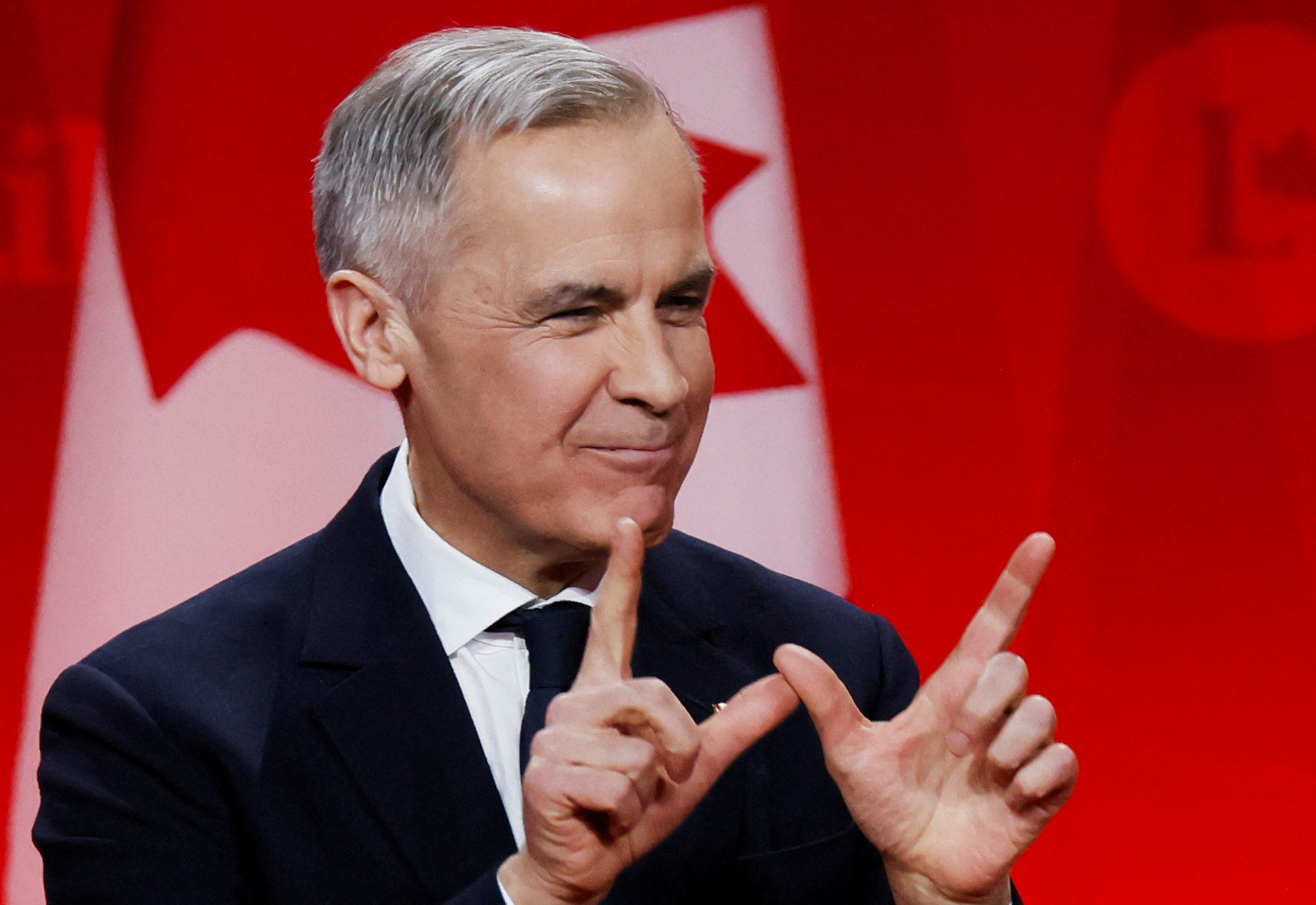Washington, DC — His name once lay at the bottom of the banknotes Canadians slid into vending machines and tucked into coat pockets.
Now, Mark Carney is writing himself into the top line of the nation's story.
With just days to go before Canada's snap election, the man who has never fought a single parliamentary seat, let alone held office, is on the verge of becoming the country’s 24th prime minister.
Carney’s rise, part improbable, part inevitability, has stunned even seasoned watchers of Canadian politics.
In a country where leadership changes tend to be orderly handovers or carefully plotted ascents, Carney’s entrance has felt more like a market disruption than a transition.
Betting markets now place the odds of him retaining the prime ministership at a whopping 80 percent.
Pierre Poilievre, once the comfortable frontrunner, is trailing as the political winds shift — and shift quickly.
But the numbers only tell part of the story.
Carney, a 59-year-old former central banker with a resume that reads like a case study in elite institutions — Harvard, Oxford, Goldman Sachs, Bank of Canada, Bank of England — was elected Liberal leader just last month.
'The rock star banker'
His predecessor, Justin Trudeau, announced his departure in January after nearly a decade in office.
Carney won the leadership contest in March. Nine days later, he called an election.
It was a gamble, but Carney is no stranger to risk. He spent much of his career making high-stakes decisions in rooms without windows — first at Goldman, then in the governor's chair at two of the world’s most influential central banks.
In 2008, during the financial crisis, he helped steer Canada away from the worst of the wreckage. In 2013, Britain tapped him as the first foreigner to run the Bank of England.
There, he became a steady figure in stormy times — Brexit, austerity and political churn. The British press called him "the rock star banker."
But no amount of Davos applause or economic gravitas could have prepared him for the campaign trail — a hard, bitter road where credibility is a liability and fluency in climate finance won't move undecided voters in Manitoba or the Maritimes.
And then, unexpectedly, US President Donald Trump spoke.
Joke that shook the north
Since returning to the White House in January, Trump has moved to impose a 25 percent tariff on Canadian goods and an additional 10 percent duty on energy exports.
He has threatened to "reconsider the northern border" and make Canada the 51st US state.
Whether Trump meant it as a threat or tossed it off as a joke, Canadians, predictably, did not laugh.
And just like that, a ballot box issue was born.
The US president’s rhetoric completely upended the Canadian race.
Once positioned as the change candidate, Poilievre is now being viewed by many centrist voters as a potential Trojan horse for America-first style policies.
The Liberals were quick to accuse him of being slow to condemn Trump’s threats. The Conservative campaign never recovered.
Carney, by contrast, has framed the moment as existential — about sovereignty, stability and whether Canada defines itself or is defined by proximity.
"We are facing the biggest crisis of our lifetimes," he said in last week's final debate in Montreal. "Donald Trump is trying to fundamentally change the world economy. What he's trying to do to Canada — he's trying to break us, so the US can own us."
That comment, clipped and circulated widely online, landed like a thunderclap across the campaign.
Liberals surged in polls, and early voter turnout set records. According to Elections Canada, more than 7.3 million Canadians have already voted, a new high for advance polling.
Carney’s message — steady albeit slightly technocratic — seems to be resonating in uncertain times.
On Tuesday, he told reporters that if the Liberals win on April 28, Canadians could see the federal budget back in surplus within four to five years.
Carney didn't say that in his economic plan, released just days earlier. No talk of surplus then.
Pressed on the omission during a stop in Quebec, the PM didn't flinch.
"Because we have to be prudent when we’re presenting numbers," he said — careful, measured, eyes steady.

Grind of governing
Even his critics concede he has brought an adult voice to a playground brawl.
But questions remain. Carney has never faced the grind of governing as a politician. He has never sat in opposition. He has never wrangled legislation through a divided Parliament.
Some worry he's just too elite with little roots — that his feet may never touch the ground.
Still, others see something else: a return to competence. To civility. To grown-up government in a time when strongmen and slogans dominate too many democracies.
As of now, Carney's path to a full mandate appears open. The margins are slim. The polls are tightening.
But the momentum is his, and it appears that history has already made up its mind.



















